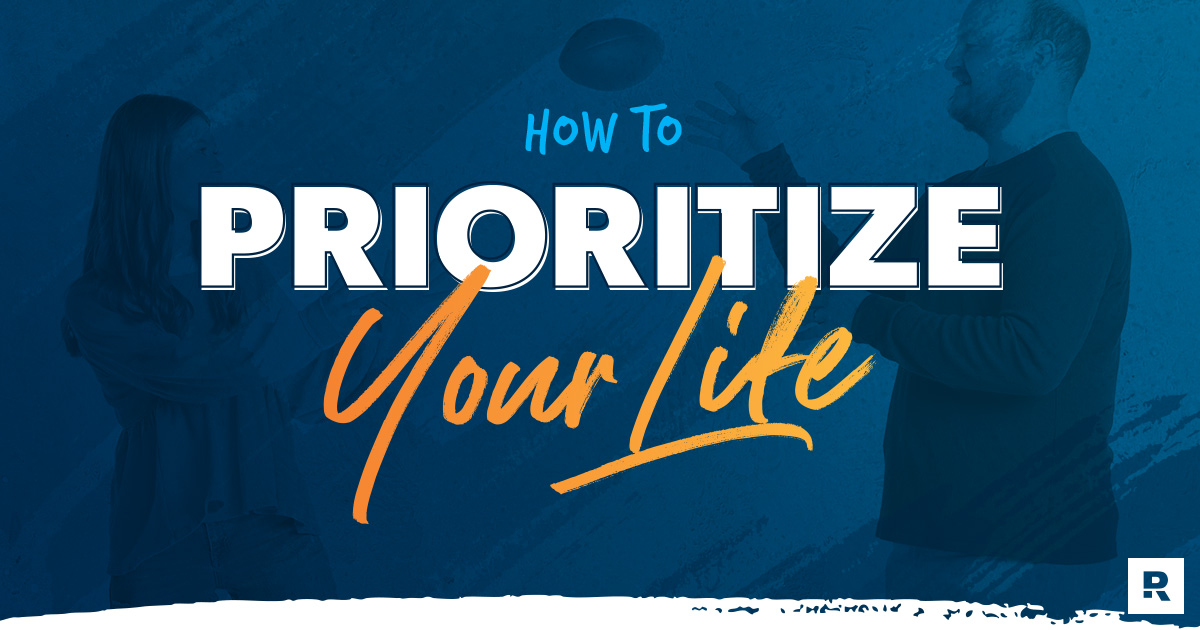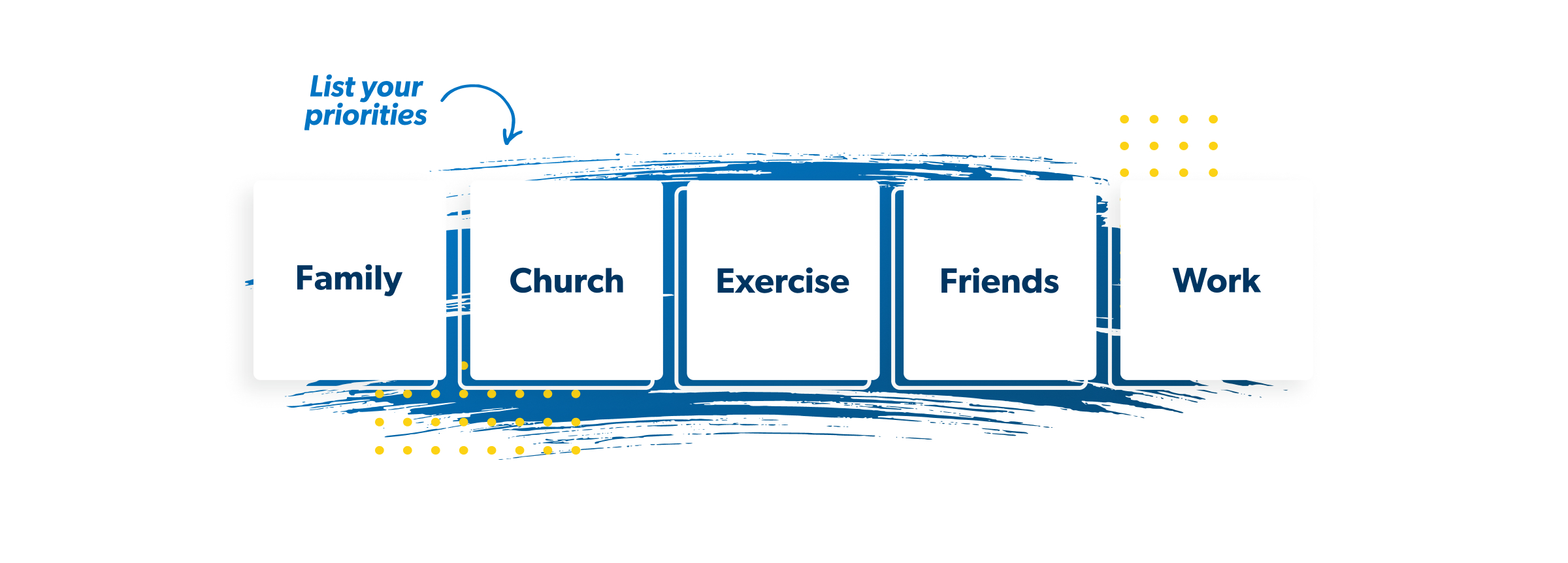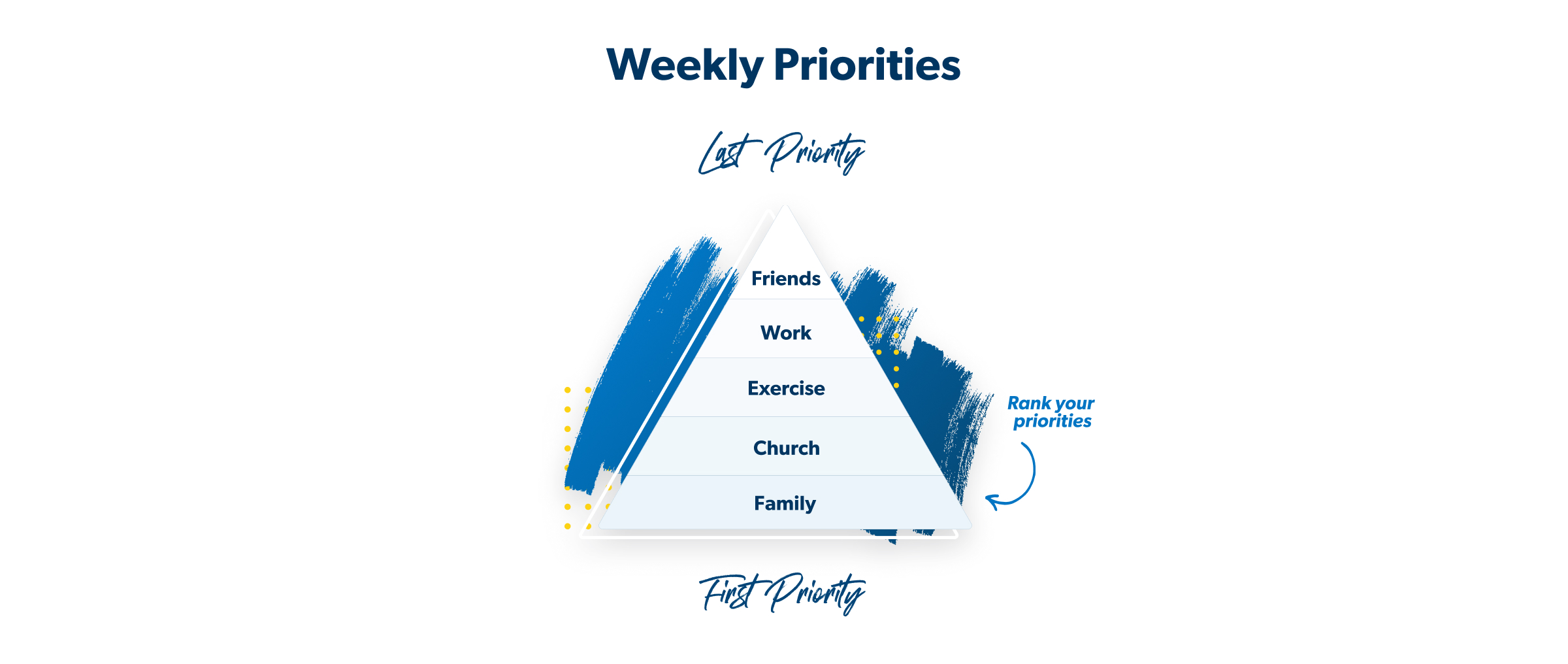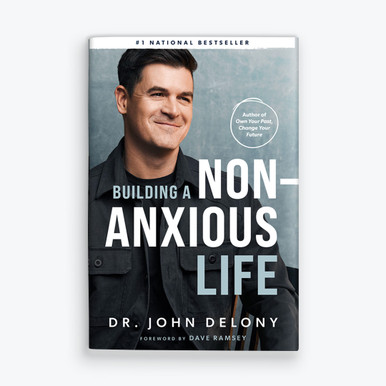5 Ways to Prioritize (That Actually Work)
9 Min Read | May 6, 2024

We all have those days when we feel pulled in a thousand different directions and all our responsibilities feel equally important: hitting the work deadline, getting in the workout, making cookies for the bake sale, pouring into your relationships . . . and the list goes on. How do you manage it all? Prioritization. This is the process of deciding what’s most important in your life and giving those things the right amount of attention and time. Prioritizing means getting clear on who you are, what you want to achieve, and how you want to live your life.
When you know what’s most important, you can find fresh motivation, focus and excitement to do what matters to you. You feel free to say no to the things that won’t move you closer to your goals. You can use limits to your advantage and make the most of the time, energy and money you’ve got to achieve your goals.
Is this easier said than done? Yes—and learning how to prioritize is a process. But it’s a skill you can learn, and I promise it’ll be worth it.
The Importance of Prioritization
There are a million things competing for your time, money and attention. And since you have limited amounts of all three, you need to be intentional about how you’re spending these resources. That’s why learning how to prioritize could be life-changing for you.
Here are five things prioritization can help you do:
Create life balance.
Sometimes less is more. We all have responsibilities that have to be taken care of. But rest is seriously overlooked in our culture. When we pause and make time for a full night’s sleep, connection with loved ones, and our hobbies, we set ourselves up to approach work with fresh energy.
Manage your time and money.
Dave Ramsey likes to say, “I can tell by looking at your bank account and your calendar what you care about. Because that’s where you spend your time and your money.” The truth is, we spend our money and our time on things that matter to us. Having clear priorities will help you manage your time and clean up your budget, which will keep you from wasting resources on things that drain you.
Make decisions.
Clarifying your priorities means making a few big decisions instead of many smaller ones. Once you know what your yes is, you’ll have an easier time saying no to things that don’t matter. Here’s an example: If going to bed early is a priority, turn your devices off and leave them in the kitchen so you're not tempted to answer emails or doom scroll in the bedroom.
Feel confident.
After prioritizing, you’ll live with a deeper sense of purpose. You’ll wake up each morning with a clear idea of what you want to accomplish that day—or what needs to wait or be delegated to someone else.
Feel less stressed.
If you don’t put your own goals first, it’ll be easy to let the schedules and needs of everyone else dictate your actions. Before you know it, you’ll be putting out fires for everyone else, wondering why you don’t have energy for your own work. But when you start prioritizing, you’ll not only be in control of your time—you’ll feel calmer knowing you have a plan!
How to Prioritize Your Life
There are dozens of self-help hacks and tools for prioritization out there, and many of them are great! But before we get tactical, I want to zoom out and get the 30,000-foot view of what you want out of life. Because if you haven’t made the right decisions about the big things, it doesn’t really matter what decisions you make about the small things.
1. Take ownership of your time.
If you want to understand your priorities and live a balanced life, you’ve got to take responsibility for how you spend your time. No matter how busy or stressed you are, you are in control of what goes on your calendar (there are exceptions, of course—life happens!).
Want to build a non-anxious life? Learn how in Dr. John Delony’s new book.
Nobody else can decide what your priorities are. That’s your job. And while it is a great idea to talk through the process with a friend or mentor—and especially your spouse—it comes down to taking back control of your time and deciding what you want your life to look like.
2. Decide what’s most important.
All things are not created equal. We all have a lot of good things, great things and even important things going on. But prioritizing isn’t just about doing important things. We have to put what’s most important in life first.
So, try this: Get out a piece of paper or a journal and write down all of the things going on in your life. Your obligations, relationships, hobbies—anything that takes time and energy. Then, from that list, narrow it down to the top 10 things that matter most to you. Don’t worry about the order right now—just choose the 10 most important things. It might be family, faith, exercising, work, starting a business, having a baby, applying to grad school, keeping the house clean, or something else.
3. Use the Prioritization Pyramid.
Okay, now we’re going to get tactical. You’ve identified your 10 priorities, but right now they probably all seem equally important. I want you to picture your priorities in a row, like this:

If your priorities all have equal importance, then when two competing opportunities come up, you won’t know which to pursue. How could you?
It’s time to rank your priorities in a hierarchy. Instead of an equal, horizontal list, I want you to use a pyramid to rank your priorities. Put the most important things, or the things you want to do first, on the bottom (like the foundation) and the less important or less urgent things at the top.

Now, when two competing things pop up, you can filter your options and make a decision based on what’s in line with your first priority.
And if you need to play around and practice with this before it really “clicks,” that’s okay. This is a tool for you to use—not a contract you’re locked into.
4. Divide your priorities into specific time periods.
Now we’re going to take a closer look at how to plan our daily lives around our priorities. Everyone has the top 10 priorities in their life that help create a regular rhythm and routine. But we need to use time management to work on these priorities during a season, a week or a day.
For each of these, you’re going to limit yourself to just a few. And by few, I mean three to four. Our culture is way too busy, so part of prioritization is saying no to unrealistic expectations about how much you can get done. Also, with each smaller measure of time, your priorities are going to become more specific.
Choose priorities for a season.
Your priorities will change based on the season you’re in. Let’s say you’re an accountant. You can expect work to take higher priority during tax season. Or maybe you’re about to get married. Planning a wedding is going to put some other priorities on hold, like watching the big game with your buddies each weekend. For each phase of life you’re in (it could be several months or even an entire year), choose three to four big, overarching priorities you plan to give more time, attention and money to.
Let me give you a few examples of what this might look like:
- Find and move to a new house.
- Prepare for your annual review and a possible promotion.
- Coach one of your kids’ sports teams.
Choose priorities for your week.
Your weekly priorities will change based on what you’ve got going on at work, with your kids, or in your social life. Let’s say you’ve been training for a marathon, and you’re one week away from race day. You probably want to prioritize extra sleep and healthy meals that week over spending time with friends.
Once again, choose three to four overarching priorities for your week. Here are a few ideas:
- Prepare for a big presentation at work.
- Finish filing taxes.
- Celebrate a birthday or anniversary.
Choose priorities for each day.
Knowing your priorities for the week will help you narrow down your daily priorities. These are specific action items that will help you make your goals a reality. (Dave calls his A1—the most urgent, most important task—his steak sauce.) The trick here is to not overcommit yourself to work you can’t actually accomplish. You should still limit yourself to three to four items a day unless you have a lot of extra time on your hands.
- Get to your gym class before work.
- Renew your car insurance.
- Go to bed at 9 p.m. so you’re rested for your presentation at work.
5. Say no to distractions.
Once you’re clear on your priorities, you’ve got to protect your time by saying no to distractions. This is an ongoing process that you need to revisit day after day because distractions are everywhere. From the moment we wake up, we’re bombarded with notifications and emails and people shouting for our attention. With this instant connection and constant stimulation, it’s easy to be distracted every single moment of the day.
Staying focused in a chaotic world is a choice. Don’t delay what’s most important to you to accommodate last-minute requests from other people. Don’t let good opportunities derail you from the best opportunities. Don’t say yes when you really want to say no.
By the way, it’s important to recognize that we say yes to distractions for all sorts of reasons. Maybe we don’t want to disappoint anyone, or we feel pressure to achieve, or we’re bored, or we want to be the hero. Or maybe it’s a combination of curiosity and wanting to grow and experience life. What about you? Why do you say yes? And what keeps you from saying no?
And always remember: When you say no to something, it frees you up to say yes to what matters most.
Make Choices That Prioritize Your Goals
If you’re looking for more guidance on how to make daily decisions that support the life you want to live, check out my friend Dr. John Delony’s new book, Building a Non-Anxious Life. Even if you don’t experience much anxiety or stress, he’ll walk you through the Six Daily Choices you need to build a life that’s full of connection and purpose. (You can read the first chapter online for free.)


